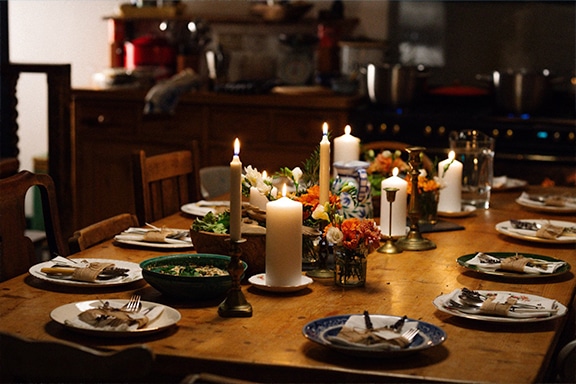Is being a despairing Christian an oxymoron? Some lessons from Elijah

Juniper tree by Jim Witkowski on Unsplash
Is a despairing Christian an oxymoron? I’ve been thinking about this question a lot of late. It presented itself to me – not for the first time, but certainly with renewed urgency – in the wake of COP26 in November 2021. I had spent much of the year campaigning with Young Christian Climate Network around issues of climate justice and climate finance and many of us were left bitterly disappointed at the outcome, feeling that it did not deliver what was necessary to protect the earth or to safeguard lives and livelihoods in some of the world’s most vulnerable communities. I know that my feelings were shared by many others who had been involved in climate activism: after all the effort we had put in, it was easy to wonder whether our work had been for nothing.
More generally, despair seems to be an all too familiar companion these days, as war rages in Ukraine, the covid pandemic continues, and we see the effects of the ecological crisis devastating communities. In the face of all of this, who wouldn’t feel overwhelmed or despairing?
I feel this impulse to despair, but – particularly as someone who is currently studying ecological hope – I also wonder if there is another possibility. What does it mean to live well in troubled times? Is there a way of holding together hope and despair?
I am reminded here of the story of Elijah, whose experience of deep despair is narrated in 1 Kings 19. In the face of defeat, Elijah runs from Ahab and Jezebel into the wilderness, lays down under a tree and begs for God to take his life. ‘I have had enough’, he says ‘take my life; I am no better than my ancestors’. It is obvious that he is overwhelmed and exhausted. He does not believe that he can carry on, cannot see any way forward. But – perhaps to Elijah’s disappointment – God does not leave him to die. Instead, God sends an angel to him, and the angels offer the nourishment and encouragement that eventually gives him the strength to go on. Even after that, we see Elijah continue to wrestle with the enormity of the situation facing him. When the angel leaves him, he finds the strength to travel forty days and nights onwards, finally taking rest in a cave at Horeb, where he is visited by God. Once again, Elijah appeals to God, lamenting that he is utterly alone, his fellow prophets have been killed, and he does not know what to do. And once again, God shows him how he might continue.
Perhaps those of us who despair can relate to Elijah. When we are surrounded by overwhelming suffering, when it feels like nothing we can do can make much difference, sometimes it feels as though all that is left to do is run away.
There is no shame in despair, and grief is not un-Christian. For many of us, despair is a result of encountering the depth of suffering and struggle that exists on this earth. The other side of despair would be a blithe ignorance of the seriousness of what we face. In my view, this latter position poses much greater danger, not least because ignorance is simply not a luxury that is afforded to everyone equally, it is just not possible for people whose intersections of experience, location and identity make them more vulnerable.
And yet, just as there is danger in the bliss of ignorance, so too is there danger in lingering in despair, for it offers a means of avoidance. To linger too long in the paralysis of despair at the state of the world can be to avoid truly confronting the problems of this world, even as we encounter them. This type of avoidance is in danger of becoming acceptance, in which we mourn the state of the world, but at the same time prematurely dismiss any possibility of meaningful change.
It is noticeable, and in my view significant, that God does not deal with Elijah’s despair by chastising him or diminishing his pain, but instead by offering encouragement and helping to see that all is not lost. Crucially, Elijah is not alone in all of this. In the depths of despair, he feels completely isolated, but at the end of Chapter 19, we see God promise him seven thousand Israelites and call Elisha to help him. Where our own despair might lead us to withdraw not just from the world but also from one another, this serves as an important reminder to seek out community, for we can do far more together than we can apart. To refuse the paralysis of despair, even in the midst of suffering, and come together in solidarity is to open ourselves once again to the possibility of a better world.
To be sure, this is not easy. We must take time to learn how we can sustain ourselves and one another. We can allow ourselves space for grief, and rest so that we might go on. There is much work that must go into thinking concretely about the kind of changes we want to see and how we might bring them about. But refusing to give up, and allowing ourselves the possibility of hope seems like a good start.




Well said Liz. Elijah is such an inspiration to Christians through the ages. As a Christian in my 50s, I am also inspired by the vision ond activism of many younger believers who are facing up to the world’s problems far better than my generation did! (Not that that lets my generation off the hook now, of course. We ALL need to do our bit). God bless,